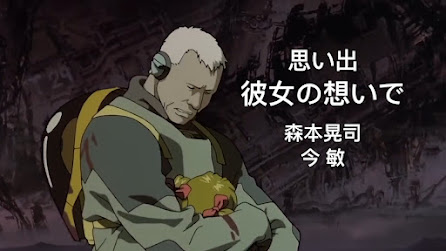Revisiting 'The Cursed': Yeon Sang-ho's First Korean Drama
If you've been following my writing for any amount of time (thank you so much, by the way) you may be aware that I've done a fairly extensive amount of work involving writer/director Yeon Sang-ho. In fact as of writing this piece I believe he is the creative whose work I have written the most about alongside Makoto Shinkai. And it was that that got me thinking: what is it about Yeon's work that I find to be so captivating, thought-provoking, and emotionally compelling? There are plenty of creatives that I respect whose scope of ambition is great and whose execution is more consistently clinical.
To start my search for answers I went back to the most recent work of Yeon's that I'd seen. 2020's 'The Cursed' which marked his first foray into the medium of Korean drama. One that, at that point, I had still been searching for a seminal experience that transcended the reach of the traditional niche audience and delivered the standout quality the medium could hypothetically put front and center as the best on offer (which wouldn't come until a year and a half later in the form of Squid Game). Who better to deliver than experience than Yeon himself, a decorated veteran of the Korean cinema space, both live action and animated, with critically acclaimed works like Train To Busan and The Fake.
The Cursed is very much a Yeon Sang-ho work through and through. A thriller with a horror slant, an unforgiving, mostly uncaring world of faceless individuals, corporate malevolence. Beats he has tread many times in the past. A teenage girl who has the ability to bring death by using names, photos and belongings, and a just social issues reporter, fighting against the massive evil hidden behind an IT conglomerate's CEO whose company willingly feeds into his shaman possession. Forest, the company in question, has been met with unprecedented success in the past decade due to their unique spin on the tried and tested social media formula.
The series is ripe with shamanistic imagery. Desolate mountains, small run down houses on the outskirts of civilization, it all serves to create a convincing disconnect between out modern society and that which thrives in seclusion, whenever the two converge it creates a unique duality between each setting with the knowledge that one is feeding the other.
Its main characters, while believably flawed, don't particularly inspire much beyond that. The depth feels lacking, even if there is at least something there. Certainly there is moral ambiguity at play with the child Jin-hee and journalist So-jin going as far to use Jin-hee's power for their own goals, but there is never enough tangible self-reflection, so long as the ends justify the means. While the series is admittedly more interested in tightly focused narrative with unclear outcomes, even just bits and pieces here and there through naturalistic dialogue can go a long way in creating a connection between the audience and the events taking place giving more of a reason to invest emotionally.
Dramas that rely on supernatural elements existing beneath the surface of our modern world need to create a coherent connection between the two. And it is impressively pulled off here with it's interwoven settings and plot threads converging in ways that feel smooth and naturally synchronized to also tie up the loose ends of the aforementioned threads. It's open-ended conclusion feels earned rather than a cheap resolution that feels under-baked. While its pacing was inconsistent its ability to never play its hand too early is something that is impressive, given how much explanation is needed for the world in which it is set.
My personal interpretation of this work is that it is a criticism of social media culture, how toxic it can be (especially in South Korea my god it's rough) and how it functions more often on a wider scale like a hateful cult than an actual community. And that those who run social networks empower and even manipulate the users to give into the cycle of hatred. The scars left by complete and total strangers hiding behind screens have the potential to run deep, maybe even more so depending on the person. It is that close proximity to each other that is so uniquely tearing us apart. The seal of healthy distance being all but disintegrated by modern convenience. And ironically it is this cycle that we play willing puppets into that also gives us a stronger urge to protect those we love.
The further lethargy that the 2020s have inspired, picking up where the encroaching dread of the late 2010s left off, has given way to the answer that I've needed. In a sea of uninspiring pedantry it is Yeon Sang-ho who takes relevant topics, ideas, etc and is able to create nuanced, coherent, and subtly smart works of fiction that rely on the subjects capacity for creative empathy and the power of said creation. The desire for better is not inherently existent in all of us, no matter what we may project. But that doesn't mean it will be impossible for that path to forge through unconventional means which may just become conventional in our future.



Comments
Post a Comment